Direct Booking?

Direct Booking?
Mount Kilimanjaro offers an incredible adventure for those daring enough to take on its challenges. However, reaching its summit doesn’t come cheap. The trek requires a careful, and sometimes a prolonged preparation, both mentally and physically.
Committing yourself and subscribe to a thorough training can make a tremendous difference between an enjoyable experience and a grueling ordeal. In this guide, we’ll explore the essential aspects of preparing for a successful climb, providing practicable tips and advise to help you conquer Africa’s most revered peak – the Mount Kilimanjaro.
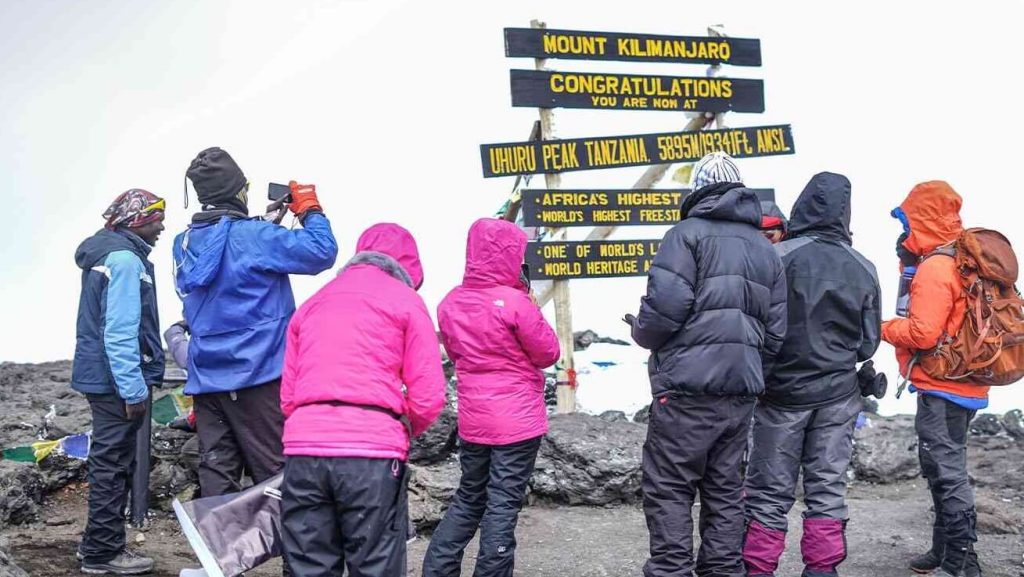
Kilimanjaro’s ascent is a trek that demands a high level of cardiovascular fitness, as you’ll be hiking for several hours daily, often at a slow and steady pace. Your heart and lungs must be conditioned to handle prolonged physical exertion, especially as the air becomes thinner at higher elevations. Muscular endurance is equally important; strong legs, core, and upper body muscles are crucial for stability and balance on uneven terrain. Training should encompass exercises that build stamina, strength, and resilience, ensuring you’re ready for the varied demands of the climb.
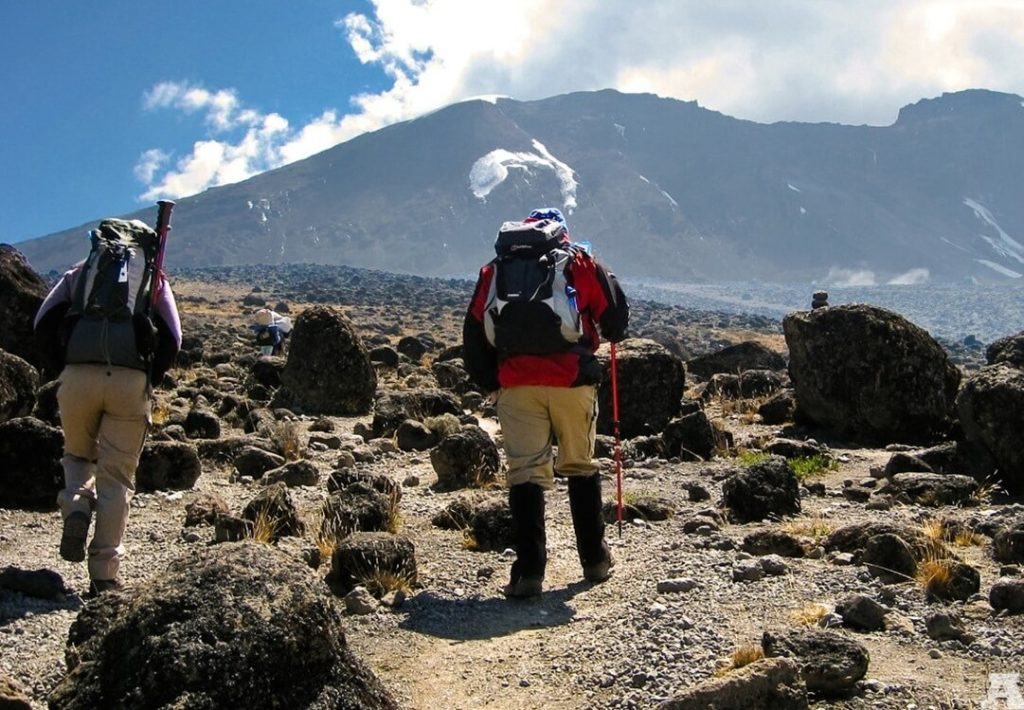
Creating a well-rounded training plan is vital for getting your body ready for the rigors of Kilimanjaro. Start your regimen several months before your Kilimanjaro expedition, allowing ample time for gradual progression. Cardiovascular training should be the foundation of your routine throughout the training period, incorporating activities such as jogging, running, cycling, and as well as swimming – I mean, at least if you can. These exercises help improve your aerobic capacity and endurance greatly. Complement this with strength training, focusing on exercises like squats, lunges, and deadlifts to build lower body strength. Don’t neglect your core and upper body, as they play a critical role in maintaining balance and carrying a backpack – remember?
Hiking practice is perhaps the most vital aspect of your overall training. Regular hikes, preferably on trails with significant elevation gain, will acclimate you to the physical and mental demands of prolonged trekking. We recommend that you aim for at least one long hike per week, gradually increasing the distance and altitude. Incorporate flexibility and balance exercises, such as yoga and stretching, to enhance your agility and prevent injuries. These aspects of your training plan work together to ensure a holistic approach to physical preparation for the real-life adventure.
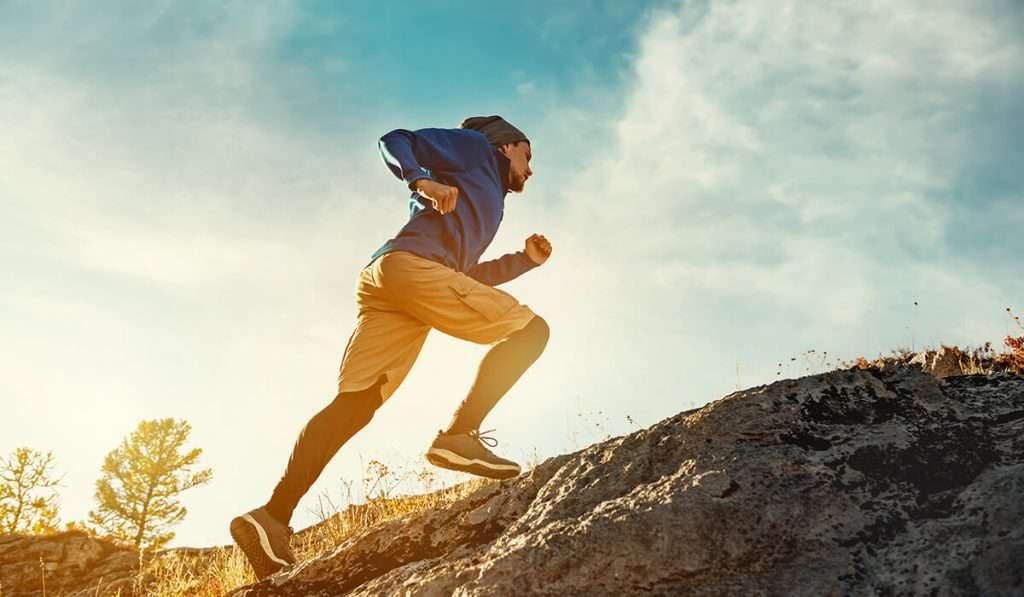
Gearing-up for Mount Kilimanjaro also requires simulating the unique conditions you’ll encounter during the trek. One of the most significant challenges is to adjust your body to the high altitude, which can have a profound impact on your body and your overall summit success. While not everyone has access to altitude training facilities, there are practical ways to acclimate your body to similar conditions. One effective method is to train with a loaded backpack, progressively increasing the weight over time. Begin with lighter loads and gradually add more weight to mimic the gear you’ll carry during the trek. This practice helps build the necessary strength and endurance in your shoulders, back, and legs, preparing you for the sustained physical demands of the climb.
Equally important is getting used to your technical gear, particularly your hiking boots and trekking poles. Breaking in your boots well before the climb is vital to prevent blisters and ensure maximum comfort. Spend time hiking in them during your training to mold them to the shape of your feet. This not only helps you avoid discomfort but also gives you confidence in your footing on uneven terrain. Similarly, using trekking poles can be a game-changer, especially on steep ascents and descents. They provide additional stability, reduce the strain on your knees, and help distribute the physical effort more evenly across your body. Practice utilizing them during your training to get a feel for the rhythm and technique.
Another aspect of simulating the trek involves acclimating to the altitude, even if you can’t exactly replicate it. If you live at a lower elevation, try to incorporate trips to higher altitudes into your training regimen. Spending a weekend at a higher altitude can help your body begin to adjust. While these measures won’t entirely simulate the high-altitude conditions of Mt. Kilimanjaro, they can help prepare your body for the reduced oxygen levels and thinner air you’ll encounter later. Remember, the air becomes thinner and there is less oxygen to breathe at higher elevations, making every step feel more laborious. Training your body to operate under these conditions, even minimally, can significantly contribute to your success.
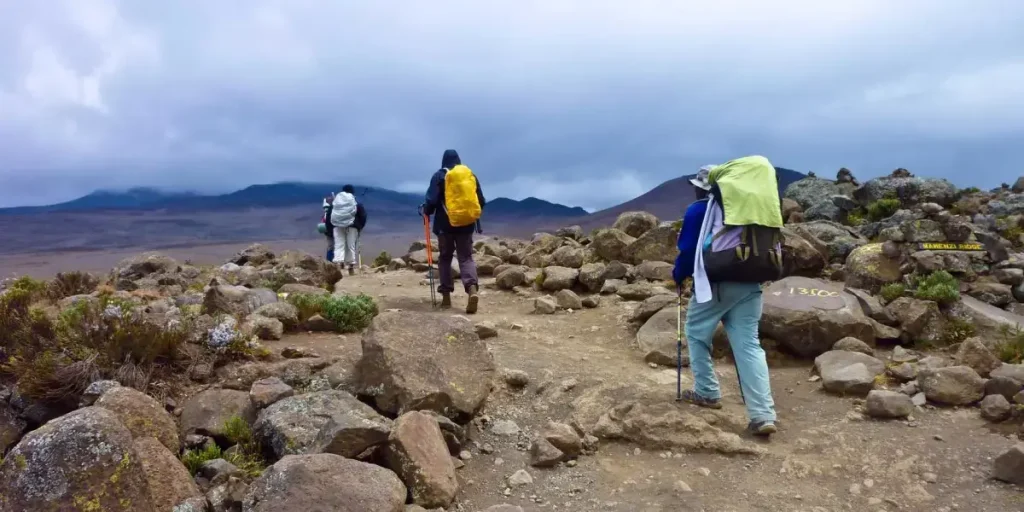
Proper nutrition and hydration are critical components of your training and the trek itself. As you continue with the training, pay special attention to a balanced diet rich in proteins, complex carbohydrates, and healthy fats. Proteins are essential for muscle repair and recovery, helping to rebuild the muscle fibers that are stressed during training and trekking. Lean meats, fish, eggs, dairy products, legumes, and nuts are excellent protein sources. Complex carbohydrates, found in whole grains, fruits, and vegetables, provide a steady energy supply, ensuring you have the stamina to tackle long hikes and challenging climbs. Healthy fats from sources like avocados, nuts, seeds, and olive oil are crucial for overall energy and maintaining cell function.
Hydration is equally crucial; staying hydrated helps maintain optimal physical performance and prevents altitude sickness. When you are well-hydrated, your body can regulate temperature better, transport nutrients more effectively, and remove waste products efficiently. Dehydration can exacerbate altitude sickness symptoms, making it essential to drink plenty of water throughout your training and the trek. Aim for at least 3-4 liters of water daily, and increase this amount during intense physical activity or in hot climates.
On the trek, the meals provided by Kilimanjaro Booking are carefully planned to meet the nutritional needs of climbers. Expect hearty breakfasts with items like porridge, eggs, and toast; nutritious lunches including sandwiches, fruits, and salads; and dinners featuring soups, pasta, rice dishes, and proteins. These meals are designed to provide the energy and nutrients required to sustain you through the physically demanding days on the mountain.
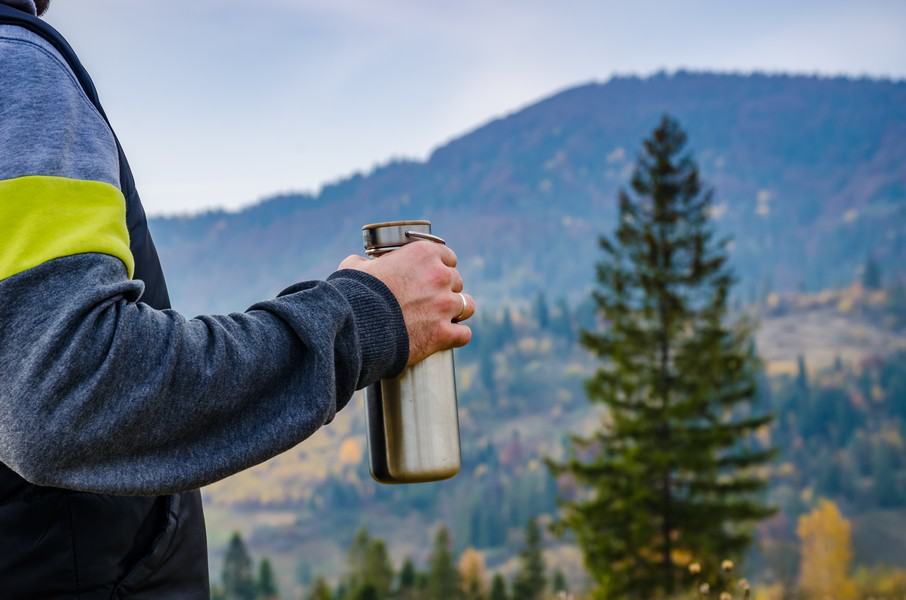
The psychological aspect of climbing Mt. Kilimanjaro is often overlooked, yet it’s just as important as the physical preparation. The trek is not only a test of your physical capabilities but also a mental challenge. There will be moments of doubt, fatigue, and discomfort, especially during the final ascent. Summit night, in particular, demands immense mental fortitude as you push through the cold and darkness to reach the peak. It’s essential to stay positive and focus on taking one step at a time. Visualization techniques can be incredibly beneficial—imagine yourself at different points along the trail, reaching milestones, and ultimately standing at the summit. Setting realistic goals and breaking the trek into manageable sections can help maintain motivation and prevent feelings of being overwhelmed.
Maintaining a positive mindset is crucial throughout the trekking period. When you’re physically exhausted and mentally strained, it’s easy to become disheartened. Embrace the challenge as part of the adventure. The lack of internet and cellular connection during the trek can be a welcome escape, allowing you to disconnect from daily distractions and synchronize with nature. This digital detox helps you fully engage with the experience, fostering a deeper connection with the environment and your fellow trekkers. Meditation and mindfulness practices can also be beneficial, helping you stay grounded and focused on the present moment.
Encouragement from fellow trekkers and Kilimanjaro Booking’s guides can be incredibly motivating. Lean on the camaraderie of your group; sharing the adventure with others who are experiencing the same highs and lows can be a tremendous source of support. Remember, anyone can accomplish this truly life-changing feat with the right mindset and determination. Embrace the mental challenges as opportunities for self-discovery and personal growth. The trek not only tests your limits but also allows you to uncover strengths and resilience you might not have realized you possessed. By preparing mentally as thoroughly as you do physically, you’ll be well-equipped to face the demands of Kilimanjaro and savor the profound sense of achievement that comes with reaching the summit.
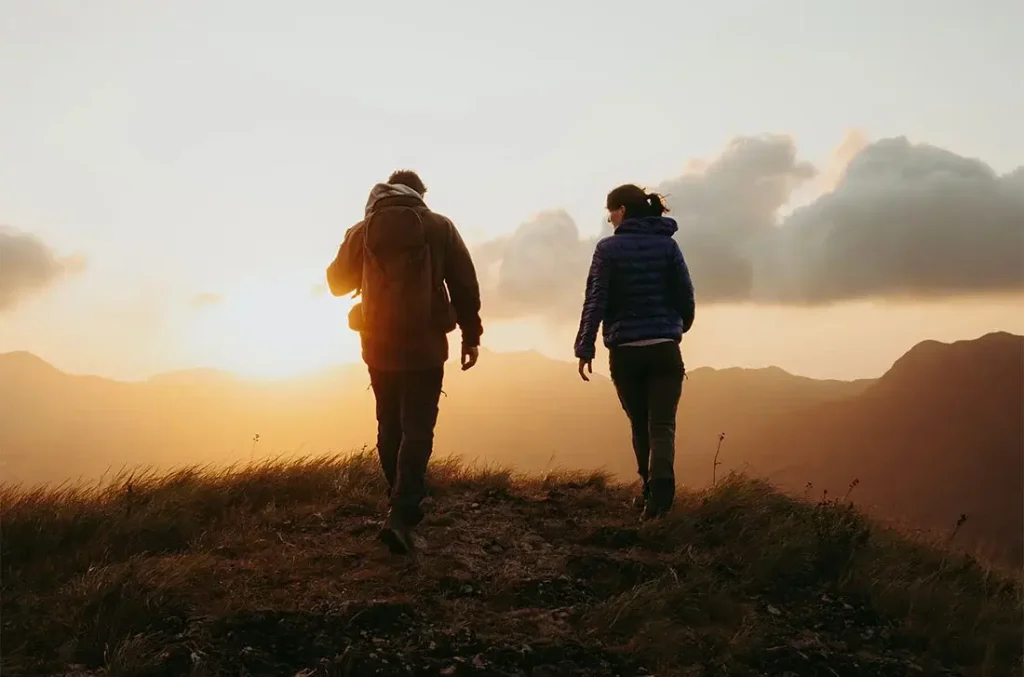
Before beginning your training sessions, we recommend that you consult with a healthcare professional to ensure you’re fit for the physical demands of the trek. Understanding altitude sickness and its symptoms is crucial for a safe and successful ascent. Like we often like to insist, the higher you go, the thinner the air becomes, and there is less oxygen to breathe. This can lead to altitude sickness, characterized by symptoms such as headaches, nausea, and dizziness. It’s vital to acclimate properly during the trek, ascending slowly and allowing your body to adjust. Don’t worry, our Kilimanjaro Booking guides are trained to monitor climbers’ health and will advise on the best practices to prevent and manage altitude-related issues.
Safety is our top priority at Kilimanjaro Booking. Our professional guides are not only experienced in navigating the mountain’s terrain but are also trained in essential safety measures. They are equipped to handle emergencies and provide support throughout the the whole trekking period. From monitoring your physical condition to offering advice on hydration and pacing, their expertise ensures that you can focus on the climb without unnecessary worries. Listening to your guide and following their instructions is very important; obviously, they know the mountain better than you know. Their guidance, combined with your preparation, forms the backbone of a successful trek.
A successful Kilimanjaro climb is actually a team effort, with guides and porters playing a pivotal role in your experience. The expertise and support provided by Kilimanjaro Booking’s team are invaluable. Our guides are experienced in navigating the mountain’s terrain and are well-versed in its challenges, from unpredictable weather to varied trail conditions. They are your mentors, offering not only practical advice on pacing, hydration, and acclimatization but also emotional support, cheering you on when the trek gets tough. Their deep knowledge of the mountain ensures that you are always on the safest and most efficient path. Listening to your guide and following their instructions is vital; they have summited the Roof of Africa countless times. Their insights can make a huge difference between a challenging climb and an enjoyable adventure, helping you to avoid common pitfalls and stay motivated.
The porters, who regard as heroes of the trek, carry the bulk of the equipment and supplies, allowing you to focus on conquering the Mt. Kilimanjaro without being weighed down. These strong and dedicated individuals handle everything from tents and cooking gear to your personal belongings, often carrying loads not more than 20 kilograms. Their hard work and dedication are instrumental in creating a seamless and enjoyable experience. Beyond their physical contributions, porters also bring a wealth of local knowledge and cultural insights, enriching your overall experience. They often set up and break down camps, prepare meals, and ensure that you have everything you need at each stage of the trek. The camaraderie between climbers, guides, and porters fosters a sense of community and shared purpose, making the trek not just a personal achievement but a collective triumph. The respect and gratitude you show towards your guides and porters will be reciprocated with their unwavering support and encouragement, making your Kilimanjaro adventure truly unforgettable.
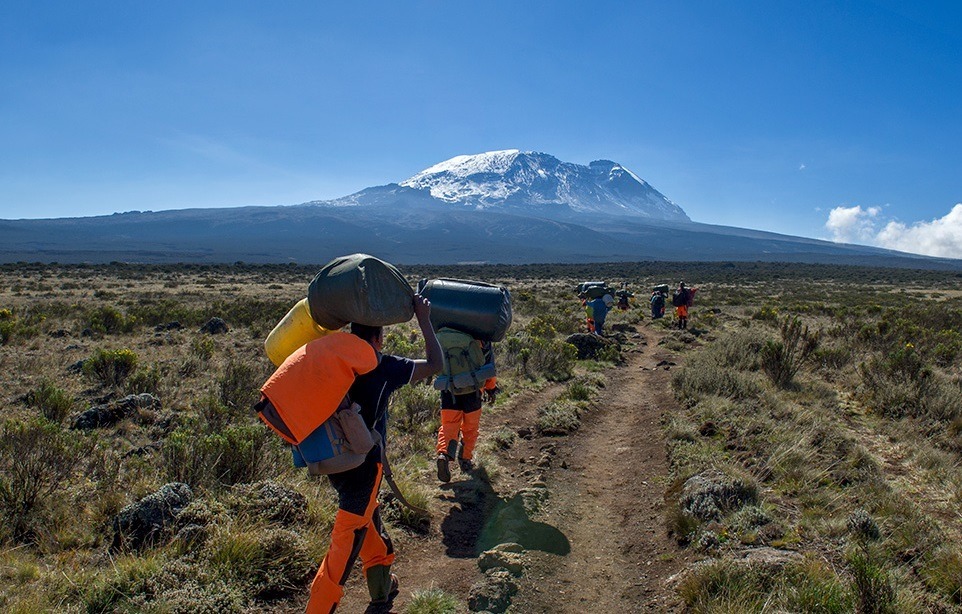
As your departure date getting closer, it’s important to finalize your preparations with utmost care. Begin by packing wisely, ensuring you have all the necessary gear, clothing, and equipment. Kilimanjaro’s weather is rather unpredictable, so prepare for various conditions, including extreme cold, rain, and intense sun. Bring layers for warmth, including thermal underwear, fleece jackets, and a quality down jacket. Waterproof gear is quite essential to keep you dry during unexpected rain showers, and comfortable, broken-in footwear is critical to avoid blisters and ensure stability on uneven terrain. Make sure to include other essentials like a good-quality sleeping bag, headlamp, sunglasses, and a wide-brimmed hat for sun protection. Don’t forget smaller, yet equally important items such as a first aid kit, blister treatment, high-energy snacks (you can buy these in Tanzania), and reusable water bottles or a hydration system.
Double-check your packing list to ensure nothing is forgotten, and consult with Kilimanjaro Booking for any last-minute advice or gear recommendations. This is also a crucial time to mentally prepare for the adventure that await you. Understand that climbing Kilimanjaro is as much about personal experience as it is about reaching the summit. Cultivate a mindset of resilience, patience, and adaptability. Again, exercise visualization techniques, imagining yourself overcoming various challenges and standing triumphantly at on the Roof of Africa. Approach this trek with an open mind and a spirit of adventure, ready to embrace every moment, from the camaraderie with fellow trekkers to the stunning landscapes you’ll encounter. Embrace the journey with both humility and determination, knowing that each step brings you closer to the summit and a profound sense of achievement is always right around the corner.
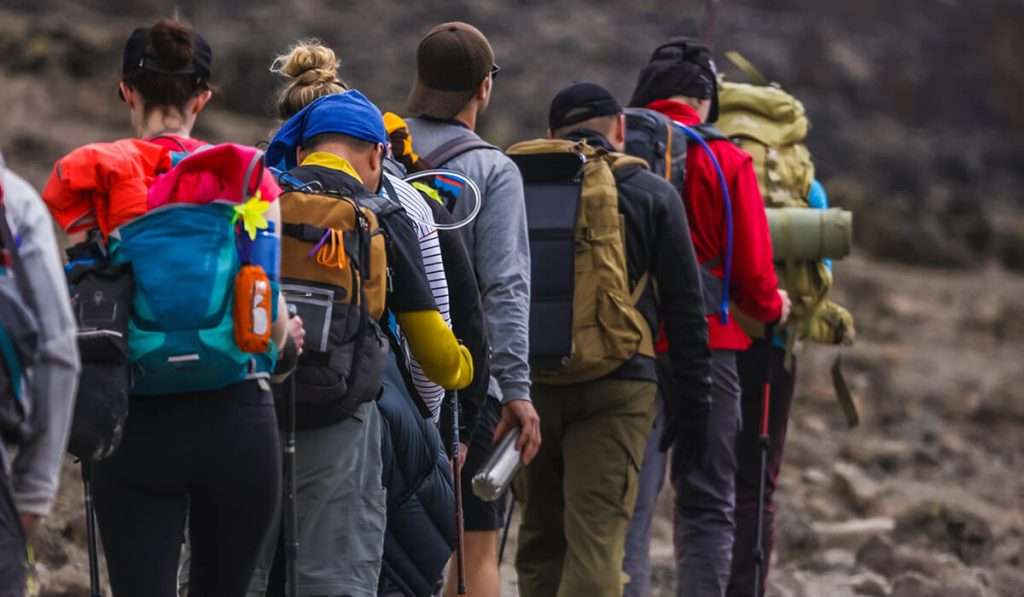
Training for Kilimanjaro is a comprehensive process that requires dedication, discipline, and careful planning. The reward, however, is an unforgettable adventure that challenges you physically and mentally while offering breathtaking views and a profound sense of achievement. At Kilimanjaro Booking, we are committed to guiding you every step of the way, ensuring your trek is safe, enjoyable, and memorable. As you stand at the Roof of Africa, looking out over the vast African landscape above the clouds, you’ll know that all the preparation was worth it. Ready to start your unforgettable adventure? Book your trek with us and take the first step towards conquering the world’s highest free-standing mount – Mount Kilimanjaro.


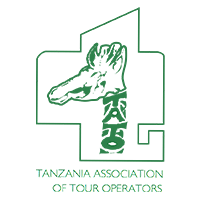

Tailor Made your Trekking

2024/2025 >> Click Here

